Aging Research Show and Tell Highlights Innovative Age-Related Disease Therapies
To encourage other Bridgeside community members to uncover cutting-edge research on age-related disease therapies, the Aging Institute hosted a Show and Tell: Aging Research, complete with lab tours and light bites to follow.
The event took place on the fifth floor and boasted seven labs that had their research posters displayed, inviting attendees to come learn more about their work and speak with lab representatives. Each lab explained their unique research and answered any questions that participants had. After all, aging affects everyone. So while the topic was broad and far reaching, the researchers presented their work on specific diseases.
Throughout the afternoon, attendees learned how age-related disease research is vital for addressing the health and well-being of aging populations, reducing healthcare costs, extending healthy lifespans, and advancing our understanding of the biology of aging. In general, it has extensive implications for individuals, families, healthcare systems, and society as a whole.
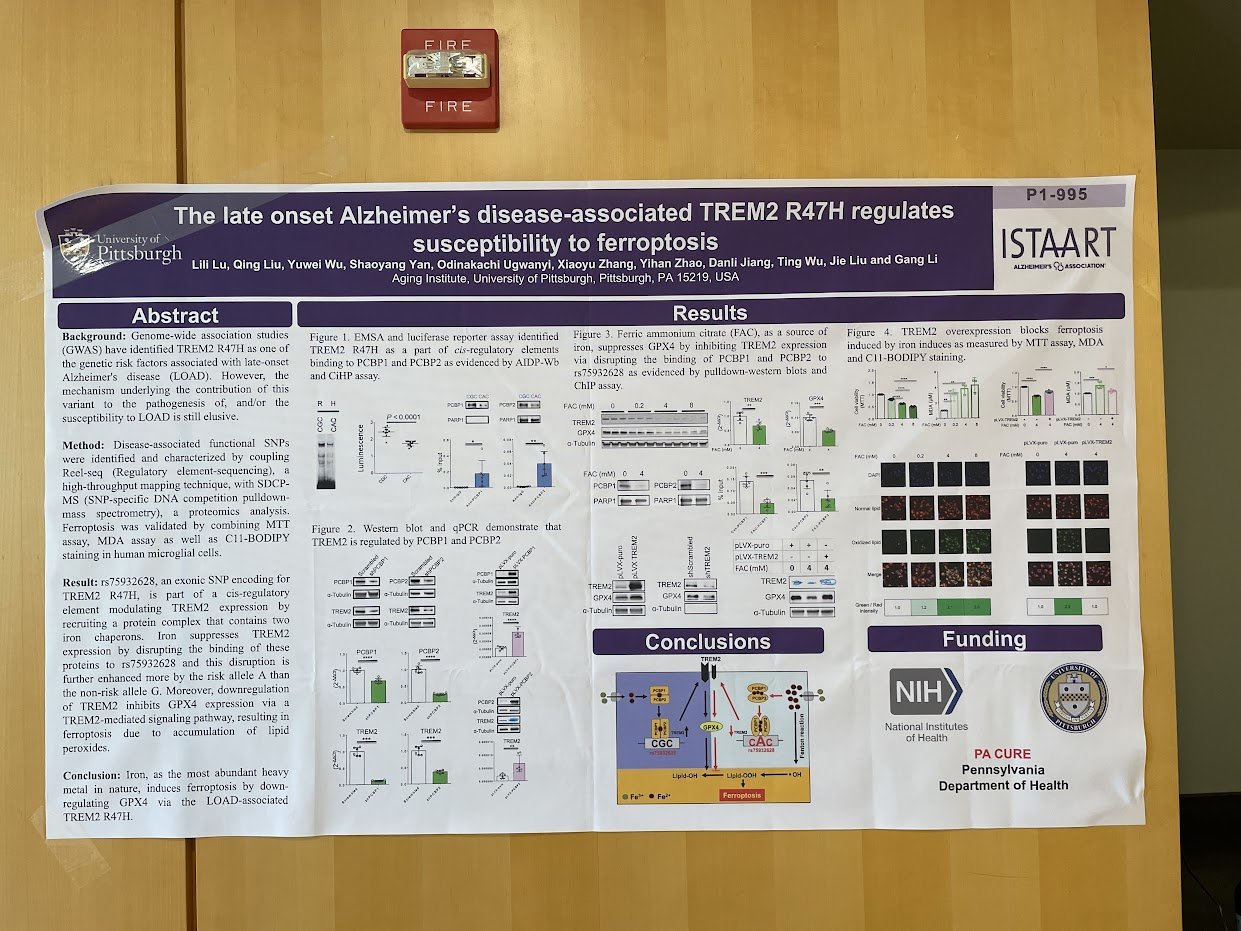
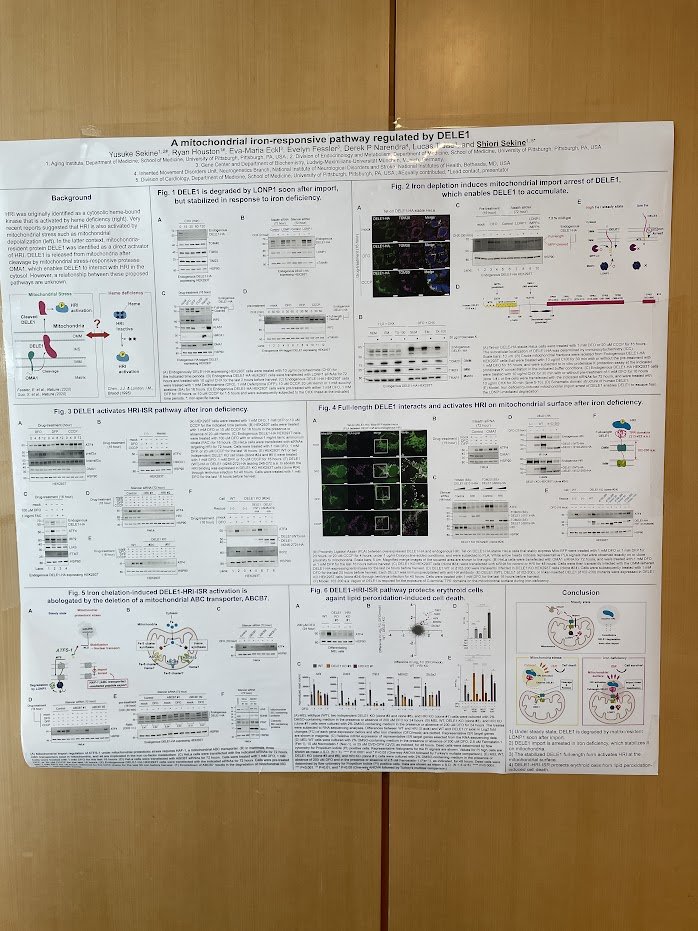
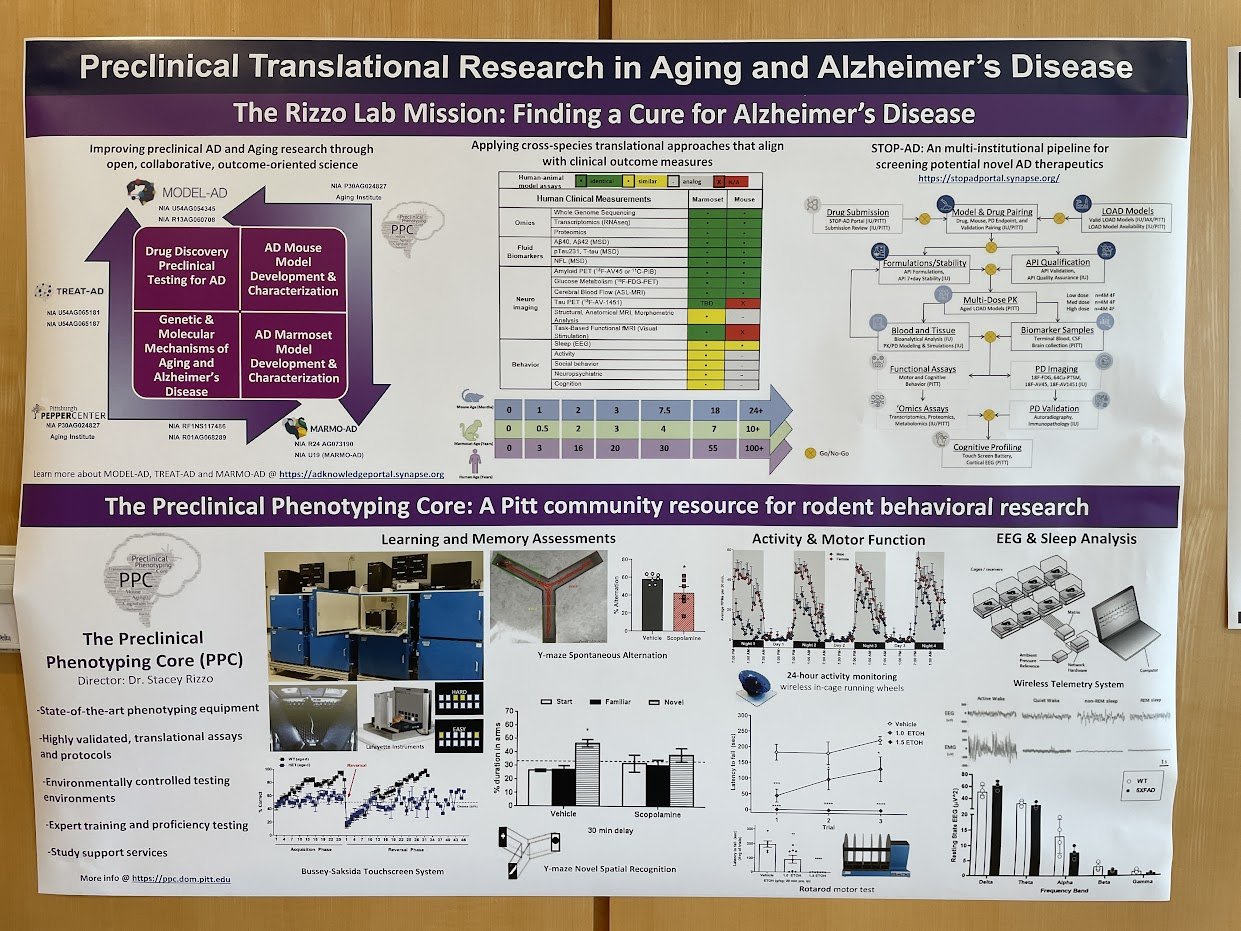
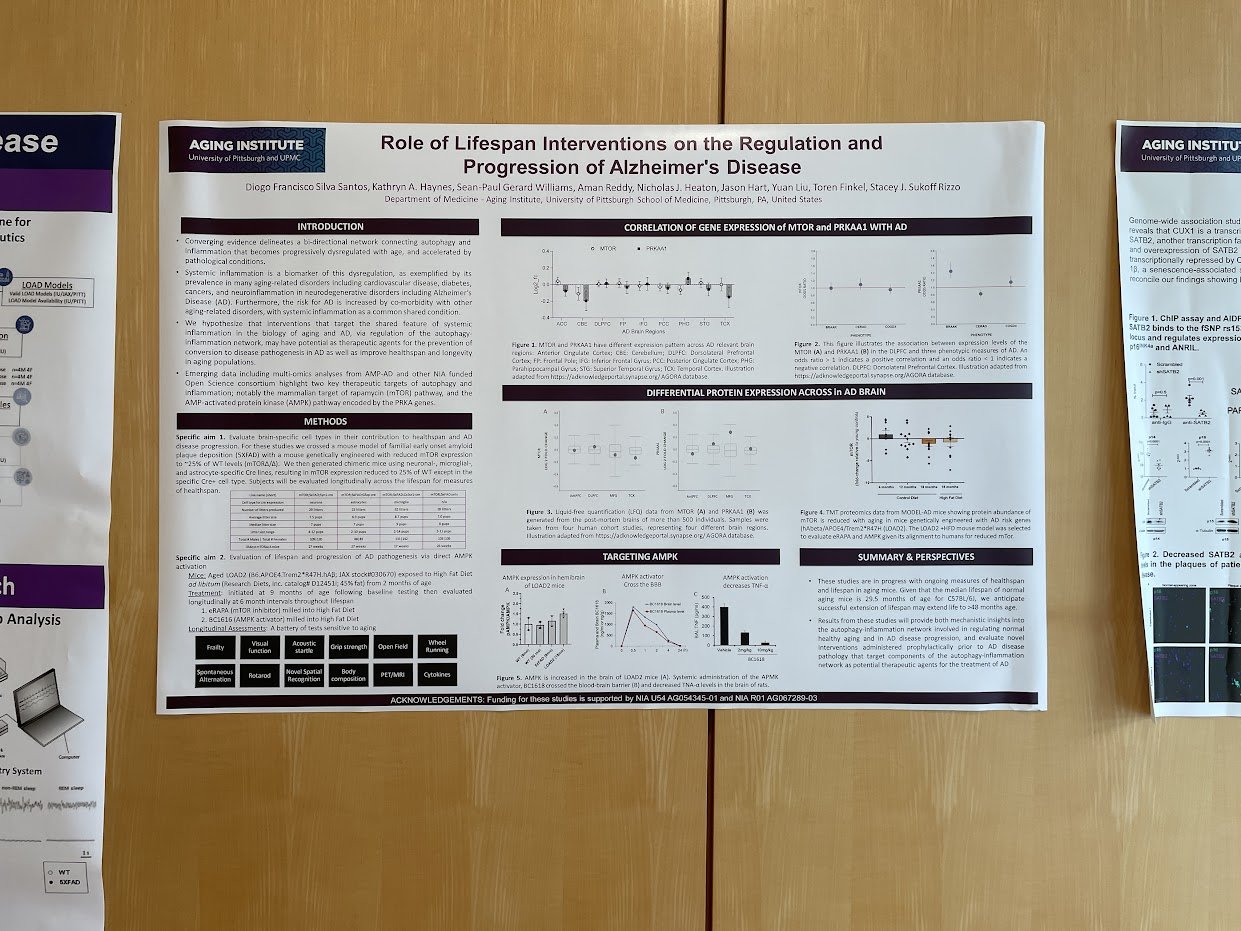
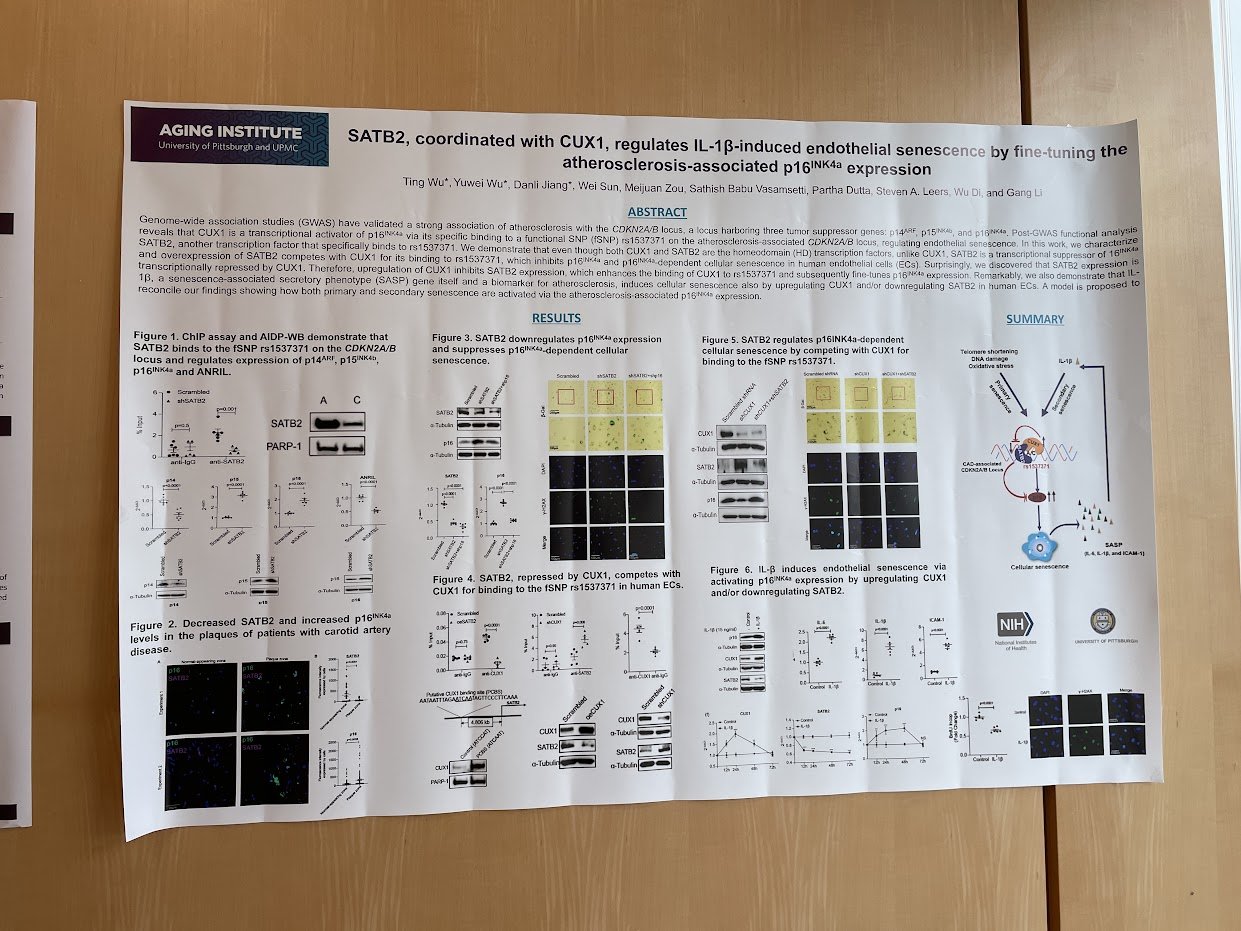
Some additional key learnings were as follows:
Advances in age-related disease research can lead to the development of innovative therapies that may include precision medicine approaches tailored to an individual's genetic and health profile, as well as regenerative medicine techniques to repair damaged tissues and organs.
As the global population continues to age, age-related diseases become more prevalent. Diseases like Alzheimer's, Parkinson's, cardiovascular diseases, and cancer are more common in older individuals. Understanding and finding ways to mitigate these diseases is crucial for the well-being of an aging population.
Cellular senescence is a fundamental aspect of aging. It refers to the process by which cells lose their ability to divide and function properly. Senescent cells can accumulate in tissues and contribute to age-related diseases.
One of the most interesting facts about aging is the existence of “supercentenarians.” Supercentenarians are individuals who have reached the remarkable age of 110 years or older. These individuals are among the oldest humans ever recorded and have attracted significant scientific interest. In fact, the oldest human being was 122 years and 164 days! The record is held by Jeanne Calment, a French woman who was born Feb 21, 1875 and passed away on August 4, 1997.
One of the best takeaways, however, was our ability to forge new connections that otherwise wouldn’t have occurred if it wasn’t for one of our events. Mary Hamby, PhD, Vice President of Research at Cognition Therapeutics, Inc. (who attended our Brains In A Bar: Space Medicine 2023 event earlier in the month) was introduced to Stacey Rizzo, PhD, Associate Professor of Neurobiology at the University of Pittsburgh.
Mary's company treats central nervous system disorders, targeting key cellular response mechanisms to fight degenerative diseases like Alzheimer's and Parkinson's disease. Meanwhile, Stacey's lab focuses on investigating the genetic contributions underlying the pathophysiology of diseases of aging including Alzheimer's Disease and neurodegenerative disorders. Or in layman's terms: Mary's company has a therapeutic that they are testing to take to market and Stacey is working on research and discovery in hopes of identifying therapeutics.
The event concluded with a happy hour of wine, cheese, crackers, fruit, and of course, more in-depth conversations with new acquaintances and familiar faces.


